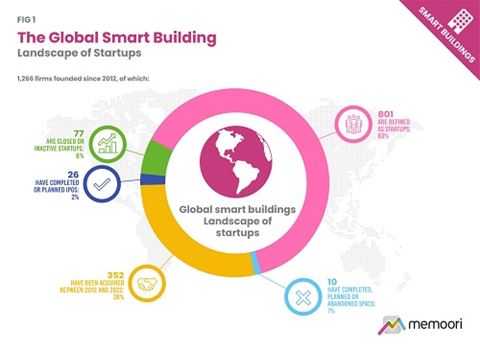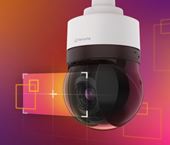The new research delves into the investment from venture capital, private equity and corporate backers for smart building startups. Memoori has identified 1,266 startups founded since 2012 that have targeted the management and operations phase of the commercial building industry.
Memoori's definition of a start-up for the purposes of the report is, “a private company formed no earlier than 2012 that is focused on the commercial and industrial buildings market, is not a subsidiary or an acquisition of a larger company and is often financed by venture capital or private equity funding.”
According to the findings, around 1,266 startups are active in the management and operations phase of the global smart commercial buildings space. This has increased by 20% in the 2 years since the company published its last startup research, and 352 startups have been acquired between 2012 – 2022, 28% of the total. Some 77 are now closed or inactive, accounting for 6% of the total.
Of all the companies to receive investment, the researchers identify the highest-funded startups in the smart buildings space in the last two years. The top 20 firms have each attracted between $225 million and $2.6 billion in total disclosed funding. Some of the highest-funded start-ups include, Sensetime, Trax, Cloudwalk, Claroty, Swell, Armis, Aurora Solar, and Arcadia.
It appears that corporate strategic investors across the built environment are playing an increasingly significant role in supporting startups, not just in terms of funding but also with strategic partnerships. The report identifies recent partnerships with established players including building systems vendors, IoT and IT vendors, lighting suppliers, facilities management service firms and security systems vendors. There is also a detailed assessment of the ecosystems of 10 incumbent players, including, ABB, Honeywell, Johnson Controls, Schneider Electric, Siemens, CBRE, Cushman & Wakefield, JLL, Carrier, Daikin.
Memoori concludes that the new research demonstrates the critical contribution that startups are making to the introduction of innovation in smart buildings and proptech.



















